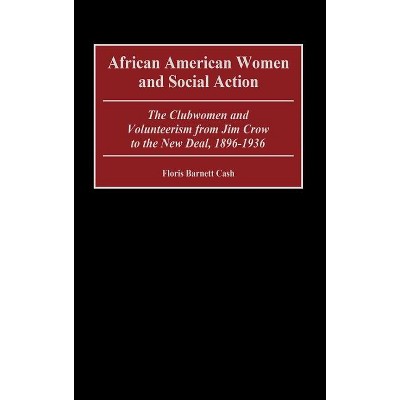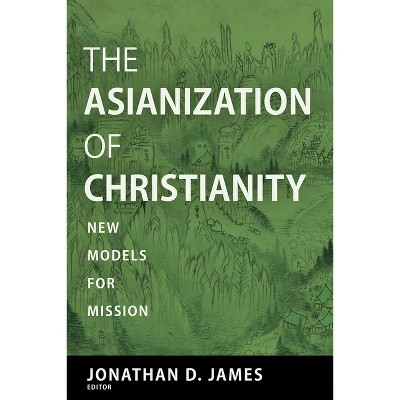Sponsored

Shamanism and Christianity - (Contributions to the Study of World History) by Andrei A Znamenski (Hardcover)
In Stock
Sponsored
About this item
Highlights
- The interaction of 19th-century Russian missionaries with three indigenous groups, the Chukchi and Altaians in Siberia and the Dena'ina Indians in Alaska, resulted in widely different outcomes.
- About the Author: ANDREI A. ZNAMENSKI is Assistant Professor of History in the Department of Humanities at Alabama State University.
- 320 Pages
- Religion + Beliefs, Christian Ministry
- Series Name: Contributions to the Study of World History
Description
About the Book
The interaction of 19th-century Russian missionaries with three indigenous groups, the Chukchi and Altaians in Siberia and the Dena'ina Indians in Alaska, resulted in widely different outcomes. The Chukchi disregarded the missionary message, the Dena'ina embraced Christianity, and the Altaians responded by selectively borrowing from Orthodox religion. Znamenski--in the first work of its kind in English--argues that the relationships between indigenous shamanism and Orthodox missionaries in Siberia and Alaska were essentially a dialogue about spiritual, political, and ideological power, and challenges both the widespread conviction that Christian missionaries always acted as agents of colonial oppression among tribal peoples and the notion that native peoples maintained their pristine traditional cultures despite years of interaction with Western society.
Znamenski asserts that Russian missionary policy toward indigenous peoples was, at best, ambivalent and cannot be described as either Russification or a broad tolerance of native cultures. After two broad introductory chapters, he deals with each indigenous people in a separate section, illustrating the ways in which native Siberians and Alaskans acted as active players, welcoming, adopting, rejecting, or reinterpreting elements of Christianity depending upon surrounding circumstances and individual cultural stances.
Book Synopsis
The interaction of 19th-century Russian missionaries with three indigenous groups, the Chukchi and Altaians in Siberia and the Dena'ina Indians in Alaska, resulted in widely different outcomes. The Chukchi disregarded the missionary message, the Dena'ina embraced Christianity, and the Altaians responded by selectively borrowing from Orthodox religion. Znamenski--in the first work of its kind in English--argues that the relationships between indigenous shamanism and Orthodox missionaries in Siberia and Alaska were essentially a dialogue about spiritual, political, and ideological power, and challenges both the widespread conviction that Christian missionaries always acted as agents of colonial oppression among tribal peoples and the notion that native peoples maintained their pristine traditional cultures despite years of interaction with Western society.
Znamenski asserts that Russian missionary policy toward indigenous peoples was, at best, ambivalent and cannot be described as either Russification or a broad tolerance of native cultures. After two broad introductory chapters, he deals with each indigenous people in a separate section, illustrating the ways in which native Siberians and Alaskans acted as active players, welcoming, adopting, rejecting, or reinterpreting elements of Christianity depending upon surrounding circumstances and individual cultural stances.Review Quotes
.,."splendid example of good ethnohistory, well grounded in anthropological literature."-Pacific Northwest Quarterly
?...splendid example of good ethnohistory, well grounded in anthropological literature.?-Pacific Northwest Quarterly
?Shamanism and Christianity is an accessible, engaging, and authoritative contribution to the historical and ethnographic literature of imperial Russia's Siberian and North American territories. It can be recommended to specialists and students of religion and nationality issues, past and present.?-Slavic Review
?Znamenski has provided a useful analysis of the social, political, and economic circumstances which surrounded missionary-native interactions. This is a volume tailor-made for students of Orthodoxy, Late Imperial Russian history and culture, and the anthropology of northern native peoples. Andrei Znamenski should be congratulated for his accomplishment in an ambitious, balanced, and worthwhile project.?-Modern Greek Studies Yearbook
?Znamenski's strength is the rich detail of his historical profiles. He has yielded the gold of missionary and indigenous voices, bringing shamans, native and mixed blood priests, teachers, and translators to life. This book is an excellent contribution to the history and historiography of Siberia and Alaska.?-American Historical Review
..."splendid example of good ethnohistory, well grounded in anthropological literature."-Pacific Northwest Quarterly
"Shamanism and Christianity is an accessible, engaging, and authoritative contribution to the historical and ethnographic literature of imperial Russia's Siberian and North American territories. It can be recommended to specialists and students of religion and nationality issues, past and present."-Slavic Review
"Znamenski's strength is the rich detail of his historical profiles. He has yielded the gold of missionary and indigenous voices, bringing shamans, native and mixed blood priests, teachers, and translators to life. This book is an excellent contribution to the history and historiography of Siberia and Alaska."-American Historical Review
"Znamenski has provided a useful analysis of the social, political, and economic circumstances which surrounded missionary-native interactions. This is a volume tailor-made for students of Orthodoxy, Late Imperial Russian history and culture, and the anthropology of northern native peoples. Andrei Znamenski should be congratulated for his accomplishment in an ambitious, balanced, and worthwhile project."-Modern Greek Studies Yearbook
About the Author
ANDREI A. ZNAMENSKI is Assistant Professor of History in the Department of Humanities at Alabama State University. His current research focuses on the history of native peoples of Siberia and Alaska. His publications include articles in Alaska History, American Indian Culture and Research Journal, Russian Review, European Studies Journal, Social Sciences, and ITINERARIOShipping details
Return details
Frequently bought together




Trending Non-Fiction













